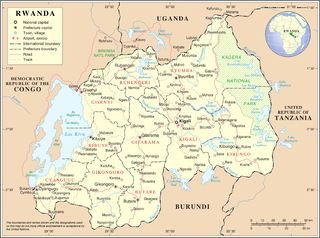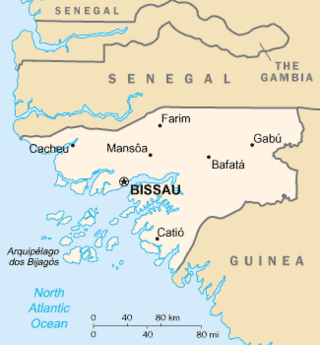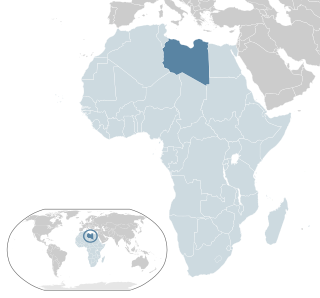A United Nations General Assembly resolution is a decision or declaration voted on by all member states of the United Nations in the General Assembly.

United Nations Security Council resolution 780 was adopted unanimously on 6 October 1992. After reaffirming Resolution 713 (1991) and subsequent resolutions on the topic, the Council expressed its concern at the continued "widespread violations of international humanitarian law" in Bosnia and Herzegovina and authorised the Secretary-General Boutros Boutros-Ghali to establish a Commission of Experts to examine and analyse the information submitted pursuant to Resolution 771 (1992) on violations of the Geneva Conventions in the region.
United Nations Security Council Resolution 139 was adopted unanimously on June 28, 1960. After examining the application of the Federation of Mali for membership in the United Nations, the Council recommended to the General Assembly that the Federation of Mali be admitted.
United Nations Security Council Resolution 158, adopted unanimously on September 28, 1960, after examining the application of the Republic of Senegal for membership in the United Nations, the Council recommended to the General Assembly that the Republic of Senegal be admitted.
United Nations Security Council Resolution 159, adopted unanimously on September 28, 1960, after examining the application of the Republic of Mali for membership in the United Nations the Council recommended to the General Assembly that the Republic of Mali be admitted.
United Nations Security Council Resolution 178, adopted unanimously on April 24, 1963, after hearing of violations of Senegalese territory by Portuguese military forces from Portuguese Guinea, the Council deplored the incident at Bouniak as well as any incursion by the Portuguese and requested that they honor their declared intention to "scrupulously respect the sovereignty and territorial integrity of Senegal".
United Nations Security Council Resolution 180, adopted on July 31, 1963, affirmed that Portugal claiming its overseas territories as part of metropolitan Portugal was contrary to the principles of the Charter. The Council deemed Portugal's actions and attitude as seriously disturbing to peace and security in Africa.
United Nations Security Council Resolution 204, adopted unanimously on May 19, 1965, after a complaint by Senegal against Portugal, the Council deplored incursions by the Portuguese Armed Forces into Senegalese territory and requested that they take whatever measures necessary to assure Senegal's territorial integrity.
United Nations Security Council Resolution 275, adopted on December 22, 1969, after a letter from the representative of Guinea and observing that these incidents by Portugal jeopardize international peace and security, the Council called upon Portugal to desist from violating the sovereignty and territorial integrity of Guinea. The Council deeply deplored the loss of life and heavy damage to several Guinean villages inflicted by the action from Guinea-Bissau, a territory under Portuguese administration, solemnly warning Portugal that if such acts were to be repeated in the future the Council would consider further steps to give effect to the resolution. It also called upon Portugal to release a motor barge by the name of Patrice Lumumba and all of its passengers.
United Nations Security Council Resolution 294, adopted on July 15, 1971, disturbed by the longstanding Portuguese violations of Senegalese territory and the recent laying of mines inside that nation which was giving shelter to independentist guerrillas of PAIGC, during the Portuguese Colonial War. The Council noted Portugal's failure to comply with previous resolutions and demanded that they immediately cease all acts of violence and destruction in Senegal and respect her territorial integrity. The Council included the usual condemnations and requested that the Secretary-General urgently send a special mission of members of the Council assisted by their military experts to carry out an inquiry into the facts of the situation and make recommendations.
United Nations Security Council Resolution 302, adopted on November 24, 1971, after reaffirming previous resolutions on the topic, the Council expressed its appreciation for the work accomplished by the Special Mission established in resolution 294. The Council deplored the lack of co-operation with the Special Mission by the Portuguese and called upon its government to take effective measures so that the territorial integrity of Senegal would be respected and to prevent acts of violence and destruction against the territory and its people.

United Nations Security Council resolution 895, adopted unanimously on 28 January 1994, after recalling previous resolutions on Israel and Lebanon including 501 (1982), 508 (1982), 509 (1982) and 520 (1982) as well as studying the report by the Secretary-General Boutros Boutros-Ghali on the United Nations Interim Force in Lebanon (UNIFIL) approved in 426 (1978), the Council decided to extend the mandate of UNIFIL for a further six months until 31 July 1994.

United Nations Security Council Resolution 989, adopted unanimously on 24 April 1995, after recalling Resolution 955 (1994), the council listed the nominations for judges at the International Criminal Tribunal for Rwanda.

United Nations Security Council resolution 1200, adopted unanimously on 30 September 1998, after recalling resolutions 955 (1994), 989 (1995) and 1165 (1998), the Council forwarded 18 nominations for judges at the International Criminal Tribunal for Rwanda (ICTR) to the General Assembly for consideration.

United Nations Security Council resolution 1216 was adopted unanimously on 21 December 1998. After expressing concern at the crisis and humanitarian situation in Guinea-Bissau, the Council called for the immediate establishment of a government of national unity in the National People's Assembly and the holding of elections by the end of March 1999.

United Nations Security Council resolution 1449, adopted unanimously on 13 December 2002, after recalling resolutions 955 (1994), 1165 (1998), 1329 (2000), 1411 (2002) and 1431 (2002), the Council forwarded a list of nominees for permanent judges at the International Criminal Tribunal for Rwanda (ICTR) to the General Assembly for consideration.

United Nations Security Council resolution 1506, adopted on 12 September 2003, after recalling resolutions 731 (1992), 748 (1992), 883 (1993) and 1192 (1998) concerning the destruction of Pan Am Flight 103 over Lockerbie, Scotland in 1988 and UTA Flight 772 over Niger in 1989, the council lifted sanctions against Libya imposed after the country failed to co-operate with investigations into the destruction of the aircraft.

United Nations Security Council Resolution 1684, adopted unanimously on June 13, 2006, after recalling resolutions 955 (1994), 1165 (1998), 1329 (2000), 1411 (2002), 1431 (2002), 1449 (2002), 1503 (2003) and 1534 (2004) concerning the International Criminal Tribunal for Rwanda (ICTR), the Council extended the terms of 11 judges beyond their expiry dates in order for them to complete the trials in which they were sitting.

The 2015 United Nations Security Council election was held on 15 October 2015 during the 70th session of the United Nations General Assembly, held at United Nations Headquarters in New York City. The elections are for five non-permanent seats on the UN Security Council for two-year mandates commencing on 1 January 2016. In accordance with the Security Council's rotation rules, whereby the ten non-permanent UNSC seats rotate among the various regional blocs into which UN member states traditionally divide themselves for voting and representation purposes, the five available seats are allocated as follows:

The United Nations Mission in the Central African Republic, more commonly known as MINURCA was a United Nations peacekeeping force in the Central African Republic. The 1350-troop mission was established by the United Nations Security Council Resolution 1159 in March 1998. It was replaced in 2000 after the Central African Republic conducted two peaceful elections, with the entirely civilian composed UN Peace-Building Support Office in the Central African Republic (BONUCA).









